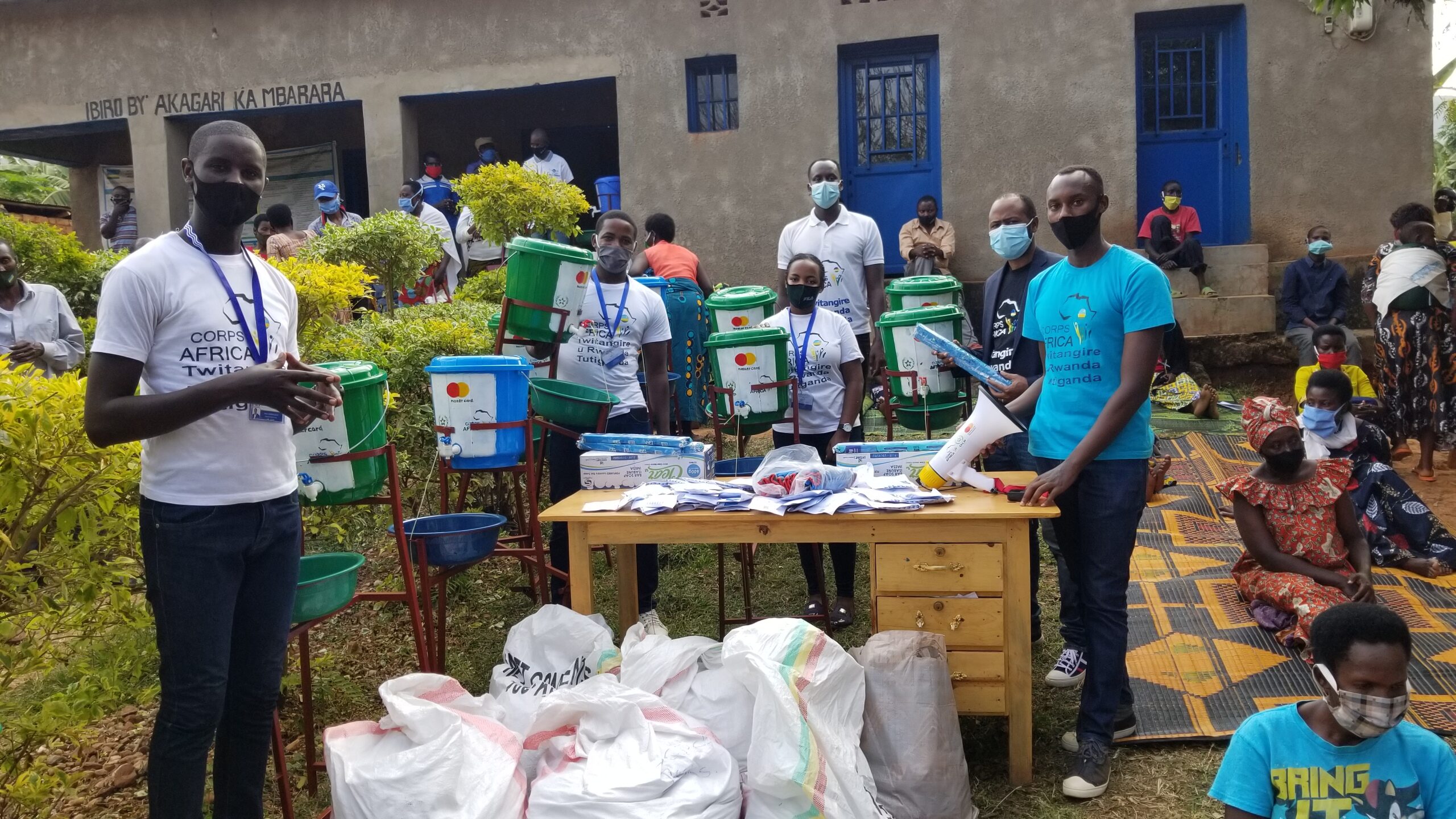Written by CorpsAfrica/Rwanda Volunteer Mr. Ulysse Uwayo
My interest in community engagement dates back to my early upbringing within underserved communities as an orphan. One of the main highlights of this experience of mine is that I realized that a lack of functioning social justice policies, institutions, and commitment consistently put people in those communities at the center of different global greatest challenges: Poverty, poor healthcare, hunger, and different forms of environmental degradation, especially in emerging economies countries like mine (Rwanda).
As I grew into a professional and active citizen, I realized that global community challenges are complex. This realization has always pushed me to invest my efforts toward professional growth, which allows for developing a broad range of professional competencies. I strongly believe and still do that solving community challenges requires us to know better about what their root causes are, to learn from many diverse perspectives, and most importantly, it requires us to adopt an engaging approach to finding long-term solutions for them or simply sustainability.
Joining CorpsAfrica as a Volunteer, forged me to be a well-rounded community development champion and leader. In addition to being a perfect fit given my belief on how community challenges should be addressed, the nature of this program presented to me a unique opportunity for me to professionally thrive by granting me world-class access to diverse experts and learning opportunities in the community development initiatives endeavors.
As a global citizen, I have always believed in the power of collective efforts in addressing complex community problems, with each community member bringing his/her contribution or simply Human-Centered Design (HCD). Being a CorpsAfrica Volunteer in the rural area of Ngororero, one of the districts of Rwanda, with high rates of malnutrition, stunting, and more, supporting the work of communities as they work to realize a better future for themselves. This very important enabled me to identify the interconnectedness and interdependence of animal, human, and environmental health, which is crucial to achieving sustainable development goals.
The lifetime reward is winning a prestigious scholarship from the University of Global Health Equity (UGHE), in the Master of Global Health Delivery (One Health Specialization). This program is the UGHE flagship academic program modeled after a similar program at Harvard Medical School, and this provides a of kind learning experience fundamentally rooted in the principle of global health, one health, epidemiology, global health policy, management, and leadership.
Community Experience and One Health Specialization:
What is One Health? It is an approach that recognizes the interdependence of Human health with the health of animals, and plants, and sustainable ecosystem health from a global perspective.
Why One Health and my community service?
Many of the global health challenges we face (pandemics such as COVID-19, and climate change, among others) cross disciplines and borders and require collaborative efforts to effectively address them. In this regard, I have been introduced to the core concepts and competencies of One Health and how this community-placed, evidence-based approach ensures optimal health for humans, other animals, and their shared environment. Using case studies and real-life examples in my community, strengthened my efforts to explore the practical application of One Health towards developing sustainable and equitable solutions for global health problems.
One Health and Marginalized Communities
One Health presents a framework that prioritizes equity and community innovations to create long-lasting solutions to health challenges. For example, one of the biggest challenges humanity is facing today is climate change and there are massive direct and indirect impacts of climate change on human health and these disproportionately impact marginalized and vulnerable communities. Further, recent scientific evidence suggests that zoonotic diseases have become endemic in poorer regions of the world which are inflicting greater harm on disadvantaged populations. Unless we move towards equity-centered approaches that favor and include the historically marginalized and the impoverished, efforts to address current and future wicked health problems will continue to exclude those most affected by these issues.
Ulysse Uwayo MSc. Corps Africa Volunteer Cohort 3,

